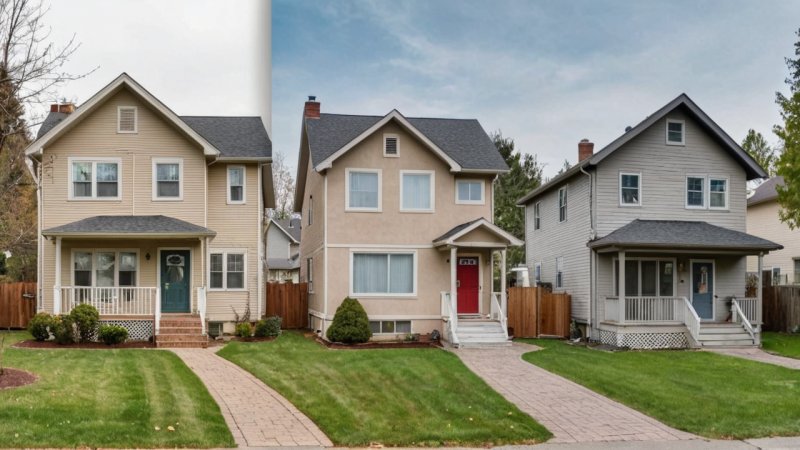The decision to rent or buy a home is one of the most significant financial choices individuals and families face. Both options come with their own set of advantages and disadvantages, influenced by personal circumstances, market conditions, and long-term goals. In this article, we will explore the key differences between renting and buying a home, evaluating the economic implications of each choice to help you make an informed decision.
Initial Costs
The initial costs associated with renting and buying a home can vary significantly. When renting, the upfront costs typically include the first month's rent, a security deposit, and possibly last month's rent. These costs can often be managed more easily as they are generally lower than those associated with purchasing a home.
In contrast, buying a home usually requires a substantial down payment, which can range from 3% to 20% of the home's purchase price. Additionally, buyers must account for closing costs, which can add another 2% to 5% to the total cost. Therefore, while renting may seem more accessible initially, buying a home can lead to greater long-term investment.
Monthly Payments
Monthly payments also differ between renting and buying. Renters typically pay a fixed amount each month, which can increase over time but is generally predictable. This allows for easier budgeting and financial planning.
On the other hand, homeowners usually have a mortgage payment that consists of principal and interest, property taxes, and homeowners insurance. While mortgage payments may be fixed for a certain period, they can fluctuate with changes in property taxes and insurance rates. Furthermore, homeowners may also face additional costs for maintenance and repairs, which can create variability in monthly expenses.
Equity and Investment
One of the most significant advantages of buying a home is the potential to build equity. As homeowners make mortgage payments, they gradually own more of their home, which can appreciate in value over time. This equity can serve as a financial asset and provide opportunities for future investments or financial security.
Conversely, renters do not build equity in the property they occupy. Monthly rent payments do not contribute to ownership, which can lead to a feeling of instability and a lack of long-term investment. However, renting can provide flexibility, allowing individuals to relocate easily without the long-term commitment of homeownership.
Market Conditions
The decision to rent or buy can also be influenced by current housing market conditions. In a buyer's market, where there is an abundance of homes for sale and prices are lower, purchasing a home may be more advantageous. Conversely, in a seller's market, where demand exceeds supply, buying can be more challenging and expensive.
Renting may be a more prudent choice in volatile markets, as it allows individuals to avoid the risks associated with fluctuating property values. Additionally, renting can provide access to desirable neighborhoods without the financial burden of purchasing a home in a competitive market.
Long-Term vs. Short-Term Goals
When considering whether to rent or buy, it's essential to evaluate your long-term and short-term goals. Buying a home is often seen as a long-term investment, suitable for those who plan to stay in one location for several years. Homeownership can provide stability and the opportunity to create a personalized living space.
Renting, however, is often better suited for individuals who anticipate relocating frequently or have uncertain job prospects. It can offer the freedom to explore different neighborhoods or cities without the commitment of a mortgage. Additionally, renting can provide access to amenities and services that may be financially out of reach for homeowners.
Tax Implications
Homeownership can come with various tax benefits, such as mortgage interest deductions and property tax deductions, which can significantly reduce the overall cost of owning a home. These tax advantages can make buying a home more financially appealing, especially for those in higher tax brackets.
Renters, on the other hand, do not typically receive similar tax benefits. However, they may benefit from lower overall tax burdens, as their financial obligations are primarily limited to rent payments. This can be particularly advantageous for individuals in lower tax brackets or those looking to minimize their tax liabilities.
Conclusion
In conclusion, the decision to rent or buy a home is multifaceted and depends on various personal and economic factors. Renting offers flexibility and lower initial costs, making it an attractive option for those with uncertain plans or a desire for mobility. Conversely, buying a home can provide long-term financial benefits, equity building, and tax advantages, making it a more suitable choice for those ready to commit to a specific location. Ultimately, individuals must weigh the pros and cons of each option in light of their unique circumstances and financial goals to make the best decision for their housing needs.






